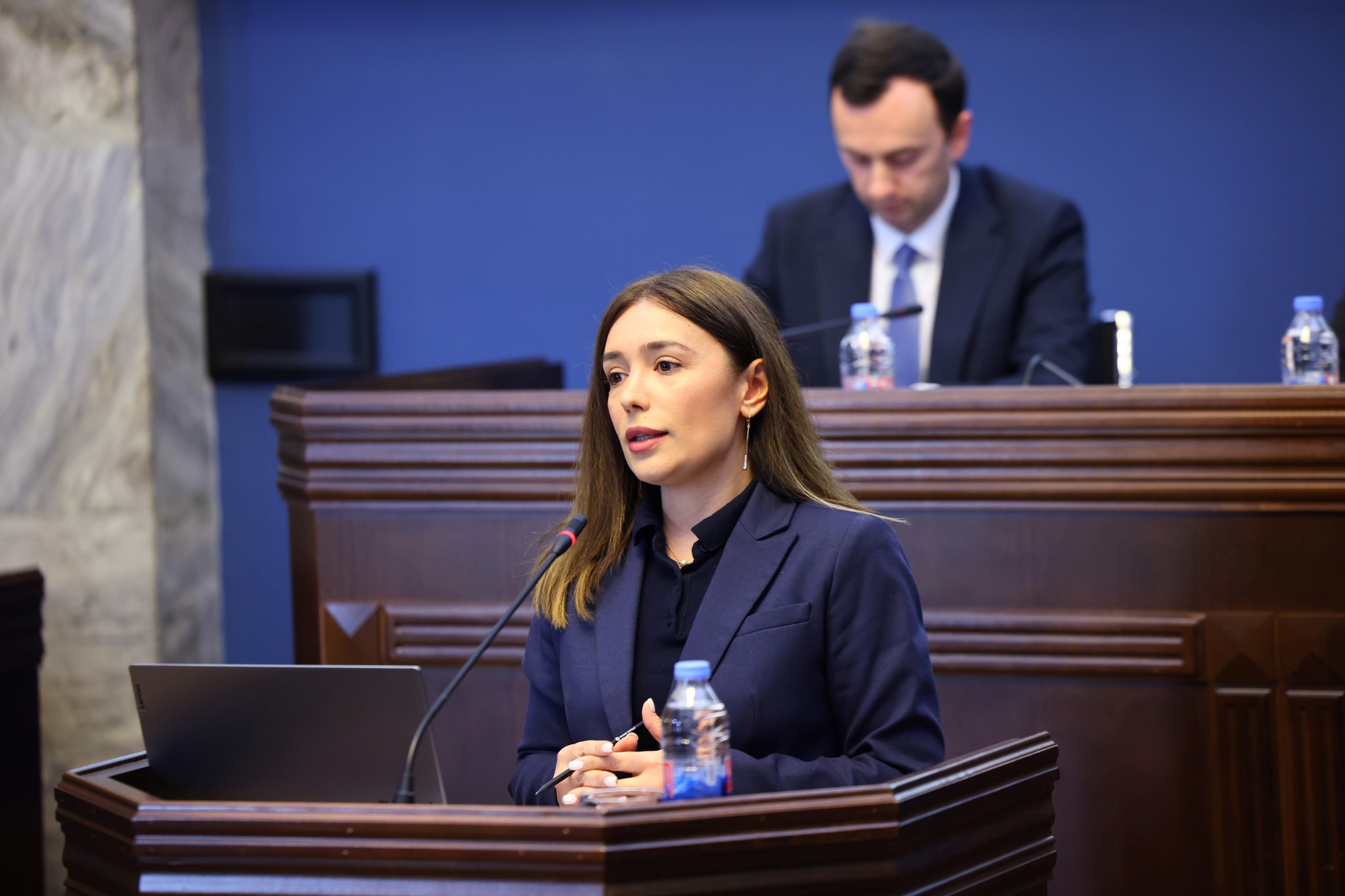News
Nino Tandilashvili: “Georgia faithfully fulfils all international obligations stemming from its participation in international climate change conventions and agreements."
At the joint session of the Parliamentary Committees on Environmental Protection, Natural Resources, and European Integration, First Deputy Minister of Environmental Protection and Agriculture, Mrs Nino Tandilashvili, presented a comprehensive report on Georgia’s progress in fulfilling its international obligations related to climate change, emphasizing implemented measures and plans for the future.
Mrs. Tandilashvili stated that Georgia remains committed to addressing the global challenge of climate change by faithfully implementing its national climate change policy and international commitments. These efforts aim not only to reduce greenhouse gas emissions but also to foster climate-resilient economic development.
“Georgia faithfully fulfils all international obligations stemming from its participation in international climate change conventions and agreements. The most important are the United Nations Framework Convention on Climate Change (UNFCCC) and the Paris Agreement, which outline specific climate change-related commitments for member states. Looking ahead, Georgia will need to pursue increasingly ambitious projects to meet its targets. Achieving a 50% reduction in greenhouse gas emissions by 2035 is a significant challenge, but the country is on the right path. With detailed calculations, targeted initiatives, and strategic government programs already in place for different sectors, we are confident that Georgia’s efforts are aligned with our international obligations. These efforts also enable us to increase our ambition and work toward halving national emissions by 2035.
We should mention that Georgia actively participates in international climate change initiatives and is a signatory to both the UNFCCC and the Paris Agreement. Following these commitments, Georgia has developed its Nationally Determined Contribution (NDC), pledging to reduce greenhouse gas emissions by 35% by 2030 compared to 1990 levels. To achieve these goals, Georgia has adopted a cornerstone document — the 2030 Climate Change Strategy — which outlines specific policy directions and actions for emission reduction. We are also beginning work on a vital strategic document — the National Adaptation Plan, aiming to establish a comprehensive vision and concrete steps for adapting to the impacts of climate change,” said Mrs Nino Tandilashvili.
Georgia’s progress is consistently recognized in international reports prepared annually, such as the Fifth National Communication, Transparency Reports, and Inventory Reports, all of which are submitted to international climate bodies. These reports reflect positively on the country’s climate efforts in both policy formulation and implementation.



